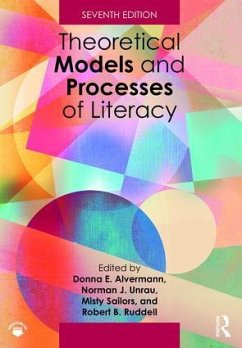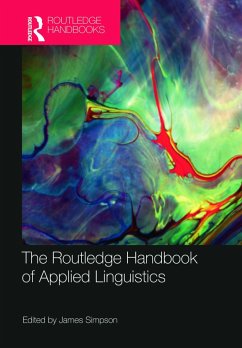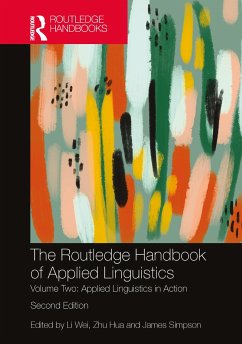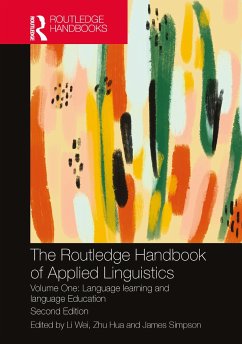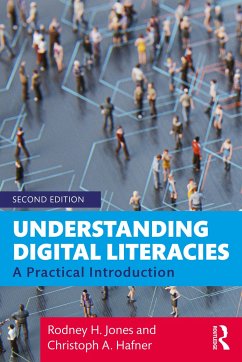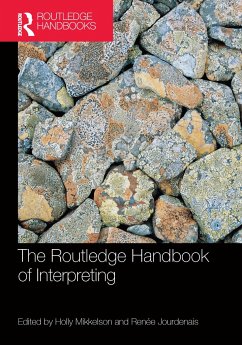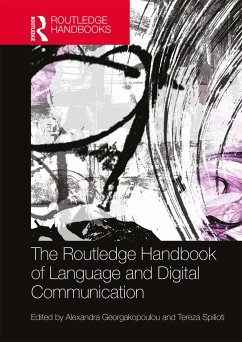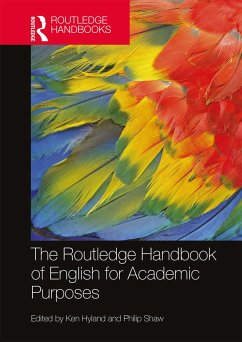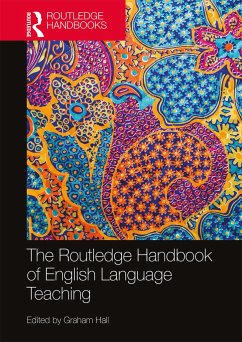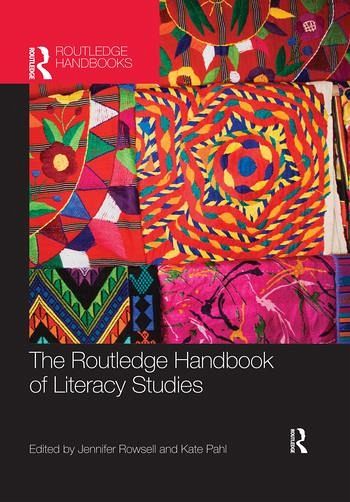
The Routledge Handbook of Literacy Studies
Versandkostenfrei!
Versandfertig in 6-10 Tagen
55,99 €
inkl. MwSt.

PAYBACK Punkte
28 °P sammeln!
The Routledge Handbook of Literacy Studies offers a comprehensive view of the field of language and literacy studies. With forty-three chapters reflecting new research from leading scholars in the field, the Handbook pushes at the boundaries of existing fields and combines with related fields and disciplines to develop a lens on contemporary scholarship and emergent fields of inquiry. The Handbook is divided into eight sections:- The foundations of literacy studies- Space-focused approaches- Time-focused approaches- Multimodal approaches- Digital approaches- Hermeneutic approaches- Making mean...
The Routledge Handbook of Literacy Studies offers a comprehensive view of the field of language and literacy studies. With forty-three chapters reflecting new research from leading scholars in the field, the Handbook pushes at the boundaries of existing fields and combines with related fields and disciplines to develop a lens on contemporary scholarship and emergent fields of inquiry. The Handbook is divided into eight sections:
- The foundations of literacy studies
- Space-focused approaches
- Time-focused approaches
- Multimodal approaches
- Digital approaches
- Hermeneutic approaches
- Making meaning from the everyday
- Co-constructing literacies with communities.
This is the first handbook of literacy studies to recognise new trends and evolving trajectories together with a focus on radical epistemologies of literacy. The Routledge Handbook of Literacy Studies is an essential reference for undergraduate and postgraduate students and those researching and working in the areas of applied linguistics and language and literacy.
- The foundations of literacy studies
- Space-focused approaches
- Time-focused approaches
- Multimodal approaches
- Digital approaches
- Hermeneutic approaches
- Making meaning from the everyday
- Co-constructing literacies with communities.
This is the first handbook of literacy studies to recognise new trends and evolving trajectories together with a focus on radical epistemologies of literacy. The Routledge Handbook of Literacy Studies is an essential reference for undergraduate and postgraduate students and those researching and working in the areas of applied linguistics and language and literacy.





